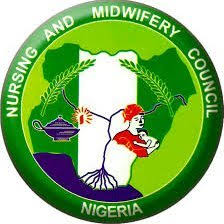In a major development for Nigeria’s healthcare sector, the federal government, the Nigerian Medical Association (NMA), and the Nigerian Association of Medical and Dental Academics (NAMDA) have reached a comprehensive agreement to resolve long-standing disputes over salaries, allowances, and employment conditions. The agreement was finalized during a three-day conciliation meeting held from July 22 to 24, 2025, at the Ministry of Labour and Employment, aimed at defusing tensions that had escalated following a contentious circular issued in June 2025.
Key Provisions and Resolutions
One of the immediate outcomes was the suspension of the June circular by the National Salaries, Incomes, and Wages Commission (NSIWC), which reviewed allowances for medical and dental officers. The government committed to working with NMA and NAMDA through a joint sub-committee to review and correct salary structures based on previous Collective Bargaining Agreements (CBAs) signed in 2001, 2009, and 2014, which are recognized as existing frameworks for fair compensation.
The agreement emphasizes harmonizing allowances, particularly call duty allowances, across various salary structures such as CONMESS and CONHESS, to address existing distortions and ensure equitable remuneration for healthcare workers. The meeting also directed that the correction of relativity issues—in particular, the disparities between clinical and non-clinical allowances—should be fast-tracked, with circulars reflecting these adjustments to be issued by the end of July 2025.
A critical aspect of the agreement involves the payment of accumulated allowances and arrears. The government acknowledged delays in clearing payments owed since 2023, including allowances for clinical duties, hazard allowances, and accrued backlogs. It was agreed that these overdue payments would be processed and disbursed promptly, with focus on ensuring no further delays.
Furthermore, the agreement provides for the immediate review and implementation of pension-related benefits for academic medical staff, including full pension benefits for medical professors and special pension benefits for hospital-based academics, as stipulated under relevant circulars and acts like the Pension Reforms Act 2014. The Federal Ministry of Health and Social Welfare will work closely with PENCOM (National Pension Commission) to expedite this process.
In addition to financial considerations, the agreement calls for significant administrative reforms aimed at improving healthcare delivery. This includes the immediate constitution of management boards for federal hospitals— a move designed to enhance governance and operational efficiency— and the expeditious review of the retirement age for medical and dental practitioners. The government also committed to establishing management committees for federal tertiary institutions within 28 days to bolster hospital administration.
The consensus also includes implementing a universal application of the Consolidated Medical Salary Structure (CONMESS) across all federal and state agencies to combat internal brain drain and attract more health professionals to public service. Efforts to adopt relativity in allowances, enforce hazard pay, and harmonize allowances for specialists, optometrists, and pharmacists are set to be finalized soon, with circulars expected to be issued by late July 2025.
In one of the most anticipated parts of the agreement, the government agreed to convene a special committee to finalize a long-overdue Collective Bargaining Agreement (CBA) on the conditions of service for medical professionals, including workload allowances and clinical duty pay. Additionally, the government will work with NMA and NAMDA to review and update the 2009 agreement on medical academics, as well as calculations of allowances for medical consultants and specialists.
This groundbreaking agreement signals a significant step forward in resolving Nigeria’s healthcare worker disputes and underscores the government’s commitment to improving the welfare of medical professionals. It aims not only to restore trust but also to enhance the quality of healthcare services across the country by ensuring fair compensation, better governance, and improved working conditions for Nigeria’s dedicated medical workforce.




